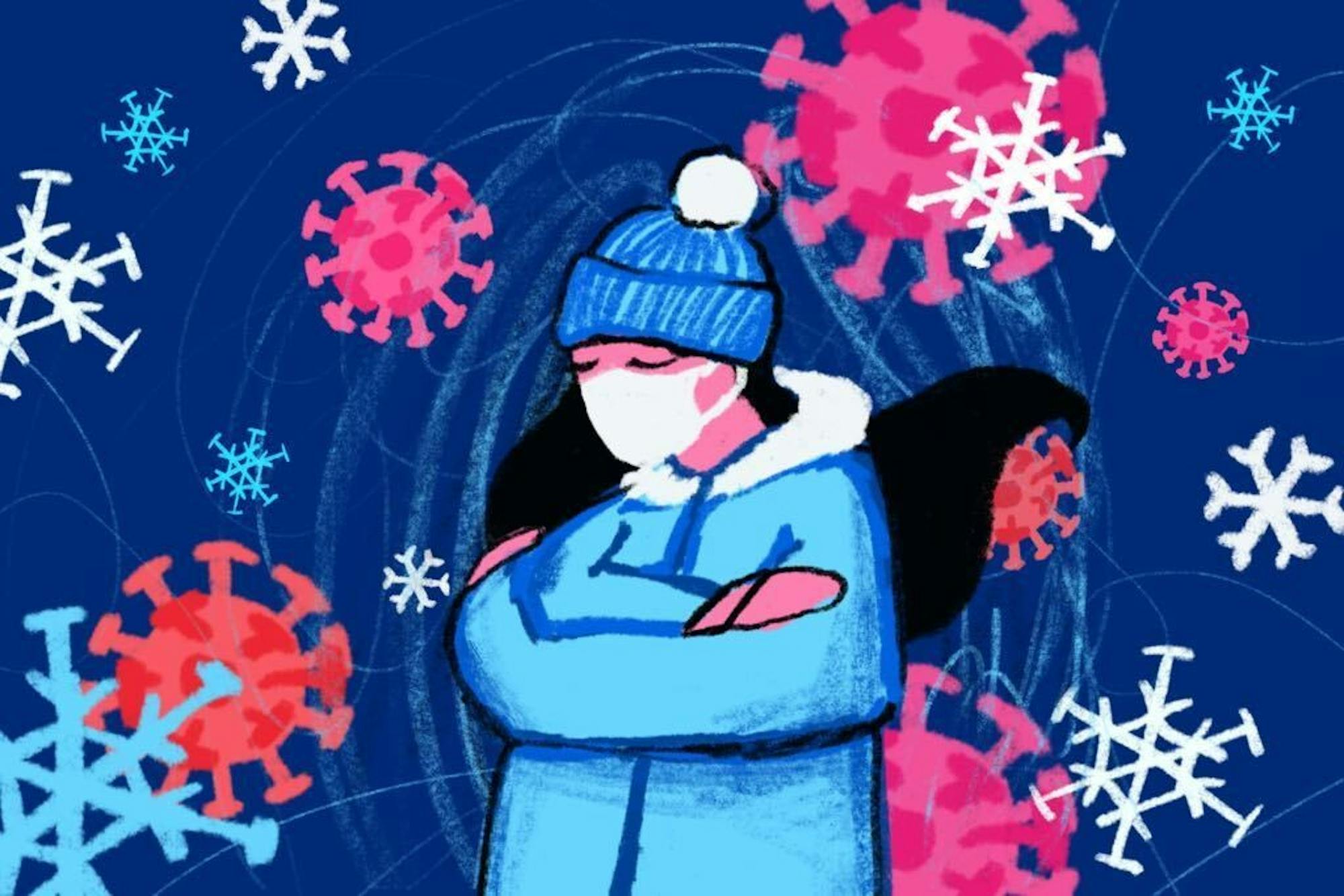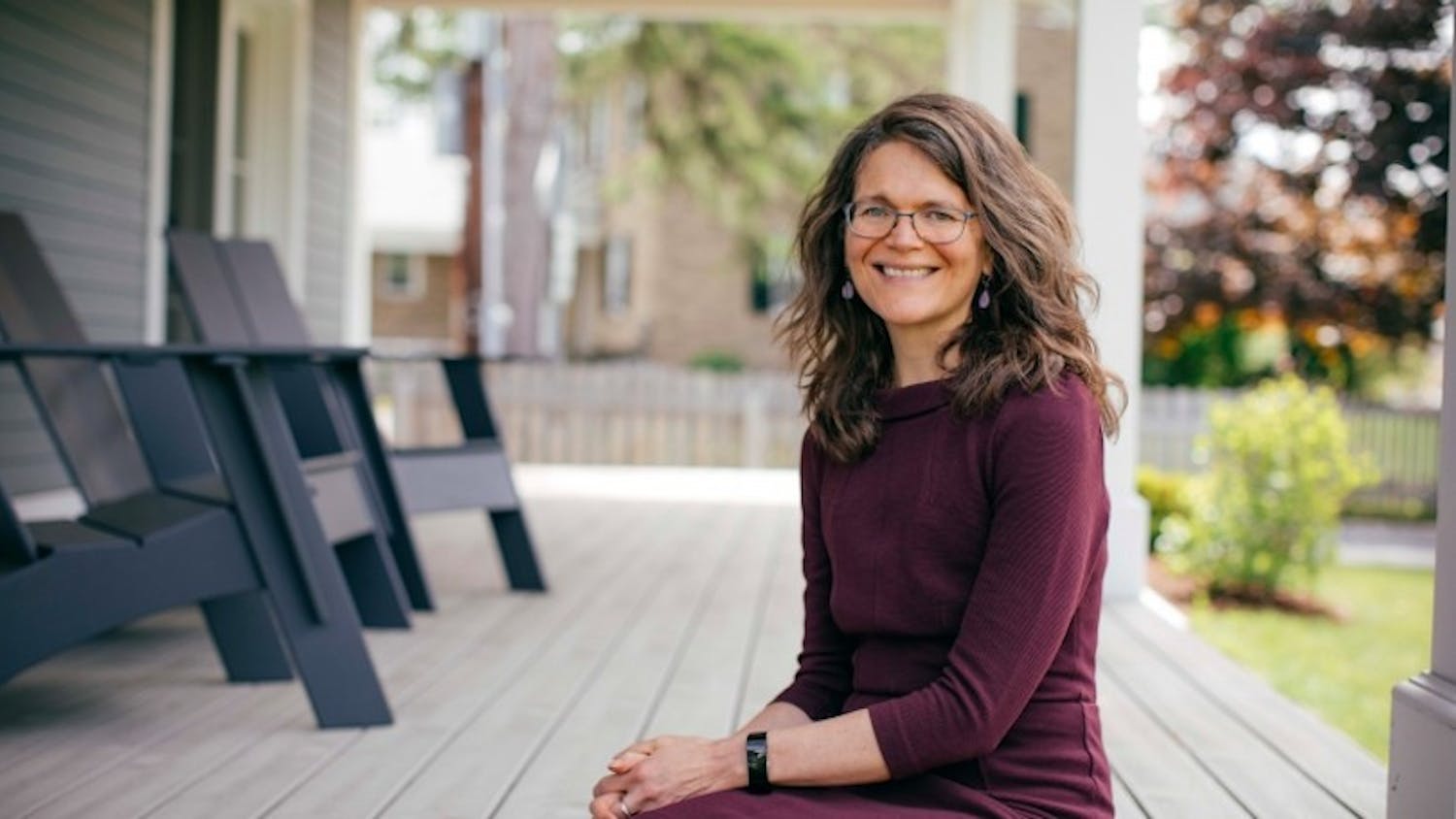You don’t have to be at Dartmouth long to hear about how dismal winter term can be. However, after growing up in Maine and coming off an amazing first term, I did not believe I would succumb to the winter slump myself when I was on campus last year. But as my boots filled with snow as I trekked across the Green, I began to understand what upperclassmen meant when they criticized winters at Dartmouth.
The entire student body seems to fall into a quiet daze, spending more time inside and less time socializing. When the sun goes down in the early afternoon and your hair freezes on the morning walk to Foco, your mood can’t help but dip along with the temperature.
Some students at Dartmouth experience something more severe than the cold weather blues. Seasonal Affective Disorder, also known as SAD — a fitting name — is a form of depression related to seasonal change. Symptoms of SAD include a lack of energy, insomnia, fatigue and overall feelings of hopelessness, guilt or worthlessness.
People cope with SAD in different ways, ranging from medication to psychotherapy to meditation. Another common treatment is light therapy, which involves sitting by a sun lamp. Some believe these lamps replicate hormones stimulated by natural light, which can be hard to come by during the long winter months in Hanover. In fact, the Student Wellness Center usually has lamps on loan for students, but the program is on pause due to COVID-19 restrictions.
Winter may still be several weeks away, but over the past seven months, COVID-19 has created an environment similar to winter in Hanover. Students have been stuck in their homes or dorm rooms with little to look forward to, and quarantine has created feelings of isolation similar to those that many experience during a winter on campus.
Many Dartmouth students feel that their main solace from COVID-19 has been getting outside — something that will become more difficult in the upcoming months. Students who are living on campus this winter won’t only have to deal with COVID-19 restrictions, but they will also have limited access to outdoor activities due to snow and freezing temperatures. I asked Bella Dunbar ’23, who plans to live in Hanover this winter, how she felt about returning to this environment.
“COVID and the winter season both have negative impacts on my mood and energy level,” Dunbar said. She added that, as a compounding factor, “a lot of the ways I got around feeling down on campus during the winter last year are things that would be a lot more difficult to do during the COVID season.”
Dunbar shared that last winter she hung out with friends and took frequent trips to the Student Wellness Center. Both of these activities will be restricted this year due to safety protocols. Matthew Goodbred ’23, who was deciding whether or not to return to campus, had similar worries.
In reference to last winter, Goodbred said, “I had mild Seasonal Affective Disorder. When it [was] sunny out with no clouds I walked outside, listened to some Kacey Musgraves — it was a very good mood. But when the sun went down … serotonin plummeted.”
Goodbred said that his main coping mechanism was going skiing, something that will likely be affected by COVID-19 guidelines as well. Like many students, Goodbred weighed concerns of isolation and potential depression when he ultimately decided to be on campus this winter.
But not all students feel the same way about winter term. In fact, many are looking forward to any chance to return to campus. Louisa Bay ’23, who will be living on campus this winter, expressed that she did not notice a huge change in her mood last winter. She alluded to the fact that spending lots of time outdoors may have helped.
“It’s always important to get outside,” Bay said. “I always find it really relaxing to take walks whether with the DOC or just off campus.”
This year, Bay is optimistic that she will still find ways to enjoy winter term, despite limited opportunities to get outside.
“You really have to search for activities with other people and be proactive with keeping up with the social life, but I personally am looking forward to the winter,” Bay said.
Furthermore, not all outdoor activities will be halted due to COVID-19. While the annual snowball fight may not happen on the Green, and the social distancing tents currently on campus may have to be taken down, other winter festivities could happen as usual. Snowshoeing, ice skating and even skiing have the potential to be conducted in a safe and distanced manner.
All of the students I talked to expressed that they were still looking forward to being on campus, hoping to take advantage of these opportunities. Since none of the students on campus this winter will be freshmen, all will have had previous winter terms to acclimate to the weather.
“Yes, it absolutely will be worse,” Goodbred said. “But I am still considering going back, and I have very different mental processes than I did a year ago.”
After losing access to campus for much of the year, many Dartmouth students are trying to look past the possibility that COVID-19 guidelines will restrict campus life and exacerbate SAD this winter. After all, it is hard to look at the snow-covered Green in a negative light when many of us haven’t been allowed on campus in months. We miss our friends, we miss Foco cookies and we miss interacting with professors. We miss the place we began to consider our second home. So after being separated from Dartmouth for so long, many students will face just about any challenge to reunite with their community.





